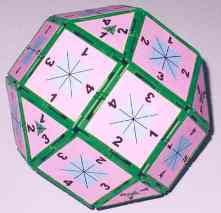 Samuel Jessurun de Mesquita (1868-1944)
Samuel Jessurun de Mesquita (1868-1944)Self-portrait with walking stick, hat and cigar, 1935
The Hague, Gemeentemuseum Den Haag
Samuel Jessurun de Mesquita: drawings and prints (Samuel Jessurun de Mesquita: Zeichnungen und Druckgraphik)
Samuel Jessurun de Mesquita: drawings and prints (Samuel Jessurun de Mesquita: Zeichnungen und Druckgraphik)
«In 1968, the Dutch journalist Bibeb interviewed Escher at length, and his vivid recollection of those events can be felt in his response to her final question, "Were you able to work during the occupation?" Escher replied:
Yes. By then I was living here [in Baarn]. My most important ideas were worked out best during the war. I still have the greatest difficulty with the Krauts. ... I was not involved with the Resistance, but I had many Jewish friends who were killed. My old teacher, de Mesquita. He did not want to go into hiding. They were Portuguese Jews and the Krauts had always allowed that they belonged to the elite. One night they were all taken away. His son, Jaap, a clever boy, had worked day and night. . . . He had often gone to see the Krauts in order to talk with them about his ancestors. They were not noble, but almost. . . . One bad day they were all gone. In 1944, during the famine winter, I wanted to bring them something, apples. ... I walked to their house. The windows on the first floor were broken. The neighbors said: "You hadn't heard? The de Mesquitas have been taken away."
This (a drawing) lay on the floor with the impressions of the cleats from the Krauts' boots. It was lying under the staircase. And in his studio everything was a mess, everything on the floor. I took home two hundred prints. . . . No matter what you do, you cannot forget such things. I cannot. . . . Taken away in the middle of the night. And he could have been saved. I tried so hard to convince him. No he was protected, he said. Why should he hide? Afterwards I blamed myself. But they did not wish to. Jaap in his talks with the Krauts had produced all sorts of genealogical registers. They were half noble. The Krauts found that impressive. They almost never left their home. Really terrible, you know, such sweet people, carried away like cattle to be butchered.
... I owe him a great deal. He was my graphics teacher. . . . He saw something in my woodcuts. He insisted that I go on with them. If he had not talked with my parents, I would have gone on into architecture. And I never really wanted to build houses. Only madhouses.»
Yes. By then I was living here [in Baarn]. My most important ideas were worked out best during the war. I still have the greatest difficulty with the Krauts. ... I was not involved with the Resistance, but I had many Jewish friends who were killed. My old teacher, de Mesquita. He did not want to go into hiding. They were Portuguese Jews and the Krauts had always allowed that they belonged to the elite. One night they were all taken away. His son, Jaap, a clever boy, had worked day and night. . . . He had often gone to see the Krauts in order to talk with them about his ancestors. They were not noble, but almost. . . . One bad day they were all gone. In 1944, during the famine winter, I wanted to bring them something, apples. ... I walked to their house. The windows on the first floor were broken. The neighbors said: "You hadn't heard? The de Mesquitas have been taken away."
This (a drawing) lay on the floor with the impressions of the cleats from the Krauts' boots. It was lying under the staircase. And in his studio everything was a mess, everything on the floor. I took home two hundred prints. . . . No matter what you do, you cannot forget such things. I cannot. . . . Taken away in the middle of the night. And he could have been saved. I tried so hard to convince him. No he was protected, he said. Why should he hide? Afterwards I blamed myself. But they did not wish to. Jaap in his talks with the Krauts had produced all sorts of genealogical registers. They were half noble. The Krauts found that impressive. They almost never left their home. Really terrible, you know, such sweet people, carried away like cattle to be butchered.
... I owe him a great deal. He was my graphics teacher. . . . He saw something in my woodcuts. He insisted that I go on with them. If he had not talked with my parents, I would have gone on into architecture. And I never really wanted to build houses. Only madhouses.»
From the book
M. C. Escher: Visions of Symmetry (Doris Schattschneider)
(interview from the book De Mens Is een Ramp voor de Wereld. Bibeb, "M. C Escher: Ik vind wat ik zelf maak het mooiste en ook het lelijkste" ("What I myself make seems to me the most beautiful and the most ugly"). In De mens is een ramp voor de wereld (People are a Disaster for the World), 68-84. Amsterdam: Van Gennep, 1969. Originally published in Vrij Nederland, April 20, 1968.)
(interview from the book De Mens Is een Ramp voor de Wereld. Bibeb, "M. C Escher: Ik vind wat ik zelf maak het mooiste en ook het lelijkste" ("What I myself make seems to me the most beautiful and the most ugly"). In De mens is een ramp voor de wereld (People are a Disaster for the World), 68-84. Amsterdam: Van Gennep, 1969. Originally published in Vrij Nederland, April 20, 1968.)




.jpg)
.jpg)
.jpg)


.jpg)
.jpg)





No comments:
Post a Comment